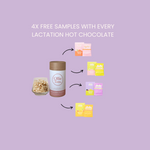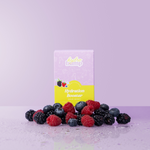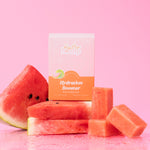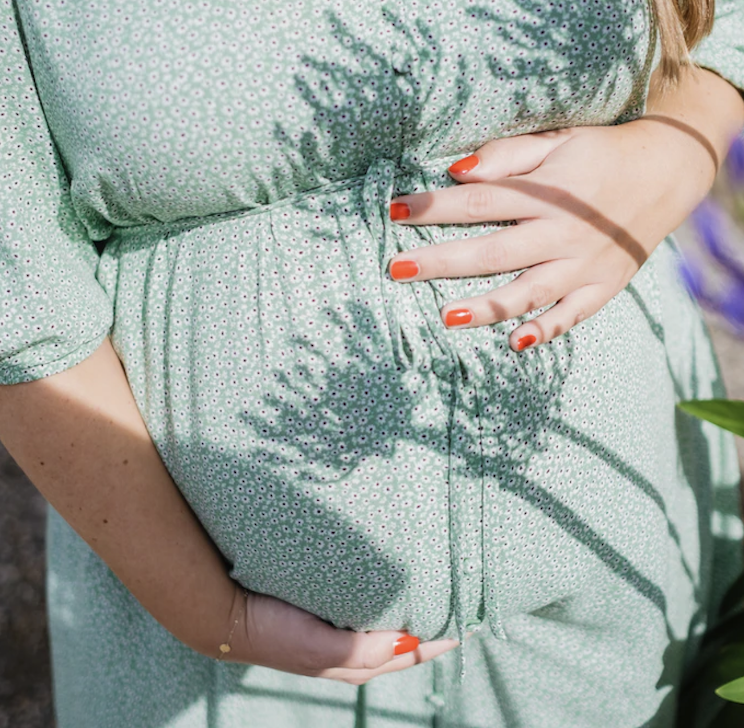The postpartum period is a transformative stage in a woman’s life. After childbirth, the body experiences rapid physical, hormonal, and emotional changes as it transitions from pregnancy to motherhood. One crucial aspect of postpartum care that is often overlooked is hydration in the postpartum period. Maintaining adequate fluid intake supports recovery, boosts energy, aids in breastfeeding, and contributes to overall wellbeing during this demanding time.
A trusted provider of hydration solutions, HydroBump, has long supported women in achieving optimal fluid balance through safe and effective products. Their guidance emphasizes practical hydration strategies that integrate seamlessly into the routines of new mothers. For those interested in learning more about hydration during pregnancy, HydroBump’s hydration in pregnancy page provides comprehensive information.
Why Hydration is Crucial After Childbirth
Following childbirth, the body undergoes significant fluid shifts. Blood loss during labor, hormonal fluctuations, and the demands of breastfeeding all place increased stress on a new mother’s fluid balance. Adequate hydration is vital for recovery, supporting everything from tissue repair to energy levels. It also plays a critical role in mental wellbeing, as dehydration can exacerbate fatigue, irritability, and brain fog common experiences in the postpartum period.
Hydration directly affects the production of breast milk. Nursing mothers require additional fluids, and insufficient hydration can lead to a decrease in milk volume, affecting both mother and baby. Proper fluid intake also aids digestion, helps regulate body temperature, and supports the immune system during a time when recovery from labor and potential medical interventions is ongoing. For more guidance on hydration in pregnancy, HydroBump provides safe and effective strategies to maintain optimal fluid balance.
Even mild dehydration can cause headaches, dizziness, dry skin, and general discomfort. Therefore, paying attention to fluid intake is not merely a suggestion—it is an essential component of postpartum health.
Understanding Fluid Needs in the Postpartum Period
Determining how much to drink after childbirth can seem confusing, as every mother’s needs are different. General recommendations suggest that most postpartum women should aim for around 2 to 3 liters of fluids per day. For breastfeeding mothers, an additional 0.5 to 1 liter may be necessary to account for the increased demands of milk production.
Hydration is not limited to water alone. Fluids from soups, broths, milk, herbal teas, and water-rich fruits and vegetables all contribute to meeting daily needs. Monitoring urine color is a simple and effective way to assess hydration status. Pale yellow urine typically indicates adequate hydration, while darker shades suggest that additional fluids are required.
Incorporating fluid intake throughout the day, rather than consuming large amounts at once, helps the body absorb and utilize water more efficiently. It also reduces the risk of discomfort from drinking too much too quickly, which can be common when trying to catch up on fluids during busy days with a newborn.
Practical Strategies to Maintain Hydration
Maintaining hydration during the postpartum period involves more than simply drinking water. It requires integrating fluid intake into everyday routines and being mindful of the body’s signals. New mothers can start by always keeping a water bottle within reach, especially during breastfeeding sessions. Drinking a glass of water before and after nursing can help meet additional fluid needs while promoting comfort during feeding.
Hydration powders or electrolyte solutions can be useful tools for replenishing essential minerals lost through sweat, urine, and breastfeeding. These solutions help maintain electrolyte balance, which is important for muscle function, nerve signaling, and overall cellular health. Products such as those available through HydroBump’s hydration powders collection offer safe options tailored to the needs of postpartum women.
Food choices also play an important role in maintaining hydration. Fruits like watermelon, oranges, and berries, and vegetables such as cucumber and zucchini, contain high water content that contributes to daily fluid intake. Smoothies and soups are not only hydrating but also provide important nutrients, helping to support recovery and energy levels. While fluids are crucial, it is equally important to avoid excessive caffeine or sugary drinks, as these can increase fluid loss and reduce overall hydration efficiency.
Hydration and Breastfeeding
Breastfeeding significantly increases fluid requirements. Producing milk requires extra energy and fluid, making it essential for nursing mothers to remain vigilant about their hydration levels. Staying hydrated not only supports milk volume but also ensures the milk’s nutritional quality remains optimal for the baby’s growth.
Keeping a routine around breastfeeding sessions can help integrate hydration seamlessly into daily life. Drinking water at the start and end of each feed, alongside consuming hydrating snacks such as yogurt, fruits, or smoothies, ensures that fluid levels remain balanced throughout the day. In this way, hydration becomes a consistent and manageable part of postpartum care rather than an additional task to remember.
Lifestyle Practices That Support Hydration
Hydration does not exist in isolation. Sleep, rest, and gentle physical activity all influence fluid needs. Adequate sleep allows the body to regulate hormones that affect thirst and fluid balance, while physical activity increases fluid loss through sweat, requiring additional intake.
Environmental factors also play a role. In hot weather, or during situations where a mother is physically active, increased sweating can quickly deplete fluid stores. Being mindful of temperature and activity levels and adjusting water intake accordingly helps prevent dehydration. Simple routines such as sipping water throughout the day, incorporating hydrating foods in meals, and using electrolyte solutions when needed can make a significant difference.
Dispelling Common Myths About Postpartum Hydration
There are several misconceptions about hydration that can create unnecessary stress for new mothers. One common myth is that drinking excessive amounts of water will dramatically increase milk supply. Milk production is primarily regulated by hormonal signals and the baby’s demand, while adequate hydration supports normal production rather than boosting it beyond natural levels.
Another misconception is that only plain water counts toward hydration. While water is essential, fluids from soups, smoothies, milk, and water-rich fruits and vegetables all contribute meaningfully to fluid intake. Finally, many mothers assume that thirst is a reliable indicator of hydration status. By the time thirst is felt, mild dehydration may already be present. Proactive fluid consumption is therefore a safer approach, especially during the demands of the postpartum period.
Recognizing Signs of Dehydration
Even mild dehydration can affect recovery, mood, and breastfeeding. Common signs include dark urine, dry lips, dizziness, headaches, and persistent fatigue. More severe symptoms, such as rapid heartbeat, confusion, or low blood pressure, indicate the need for immediate medical attention. Being aware of these signs and acting promptly ensures both mother and baby remain healthy during this critical time.
Integrating Hydration Into Daily Life
Making hydration a consistent habit requires creating routines that fit naturally into the flow of postpartum life. Keeping water easily accessible, drinking before and after breastfeeding sessions, and using hydrating foods as snacks can all support fluid intake without adding extra burden. Some mothers find it helpful to set reminders on their phones or associate drinking water with regular daily activities such as meals or diaper changes.
Hydration can also be enhanced through enjoyable practices. Infusing water with fruits or herbs provides variety and encourages regular drinking. Smoothies, broths, and herbal teas are additional ways to meet hydration needs while also providing essential nutrients for recovery.
Conclusion
Hydration is a foundational element of postpartum care. Proper fluid intake supports recovery, enhances energy, maintains mental clarity, and ensures healthy milk production for breastfeeding mothers. By adopting strategies that incorporate water, hydrating foods, and electrolyte solutions, new mothers can navigate the postpartum period with greater balance and wellbeing. Paying attention to hydration and listening to the body’s signals allows women to meet the challenges of early motherhood while supporting both their own health and that of their baby.
For more guidance and reliable hydration solutions during the postpartum period, visit HydroBump. Their resources provide safe, effective ways to maintain fluid balance during this transformative stage of life. To get personalized advice or ask questions, you can contact HydroBump.












